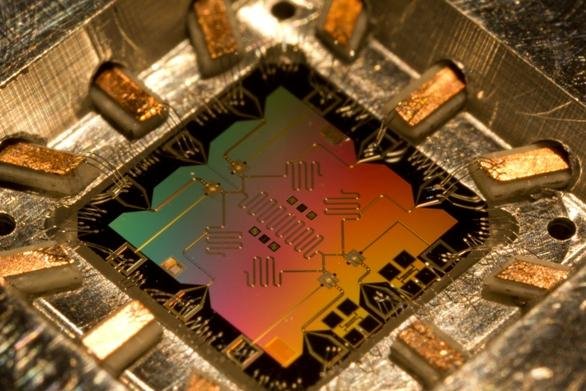
All computers run on binary. This has been a fact of the matter since the dawn of mechanical computers in the 1800’s (Yes, 1800’s. Despite popular belief computers were first mechanical. Actually you can go back further if you want to get technical, but we won’t do that) and held true when electronic (see useful) computers arrived on the scene in the 1950’s and 60’s.
So before we begin our conversation, it might be kind of nice to know what binary is and what the problem is with it.
The Limits of One and Zero
Binary is 1’s and 0’s. That’s it. Everything in your computer from the sound you hear to the things happening on screen, every input and output, can essentially be reduced to many, many groups of 1’s and 0’s. These 1’s and 0’s are represented by electronic pulses of two different strengths within the machine and are rapidly processed in groups one at a time.
So far, improving computers has meant making processors that are capable of processing those strings of 1’s and 0’s faster and faster. There have been many clever methods of doing this, but the main one has been to make transistors, the logic gates that make/compute the ‘1’s’ and ‘0’s’) within computers, smaller.
There’s a problem with this.
You see, you can only make these transistors so small before you start running into serious issues. In other words, there’s a limit to how small you can make the transistors within modern computers (referred to cutely as classical computers by quantum computer scientists).
The New Age
Computer scientists accepted this over a decade ago and have begun working on ways to surpass the limits of classical computers. Among these methods 3d computing using circuits that work in three dimensions instead of two and quantum computers are the most promising.
The reason quantum computers are probably a bit more exciting at this moment in time is that, while 3d computing is probably more feasible, the promises of quantum computers are far more exciting if actually viable.
Science of the Small
Today’s computers, binary (classical) computers, work on 1’s and 0’s also referred to as bits. A 1 or a 0 is a bit. Quantum computers work on the quantum bit, or qubit. The difference between the two is that in a classical computer each package of information, or bit, can only exist in one state at a time. Therefore, the classical computers can only compute one instruction at a time.
Quantum computers, on the other hand, take advantage of a subatomic phenomenon known as superposition in order to make each qubit able to represent a 1, 0, or a superposition of a 1 and 0. In other words a qubit is not only able to represent a 1 and a 0, but also both at the same time. This third state changes everything and we’ll talk more about it in the next part.

I have read quite a lot about quantum computing, and I have to admit, it sounds really promising, but I think quantum computing may not be made for the average consumer. Binary Computers nowadays have lots of computing power, far more than most consumers ever use. I mean there is no need for quantum computing if you just want to know the way to the next grocery store....
However, quantum computing may become very very useful, and even necessary once we are able to develope our first useful AIs. I am sure there will be a huge demand for quantum computing once AI becomes a product for the masses.
Thank you very much for this informative post, even though I am quite familiar with quantum computing already, I really enjoyed reading it :)
Well, thank you, sir! I agree that we don't really need it today. But for upcoming A.I., augmented reality, and VR applications we most certainly will.
Well that was rather easy to understand. No matter what I've read or watched about quantum computers, I just simply couldn't fully understand what's the big difference between a normal computer and a quantum one...
Yeah, I find that a lot of article writers make things more difficult than they have to be.
I likeAre you IT Technian?
Lol. Nope! But I do love reading about science and tech! :)
Quantum computers will the killer of cryptos which use blockchain unless something is improved on them like tangles.
I agree that security is going to be a real problem. All the more reason for people in crypto to keep our eyes on how this technology is progressing!